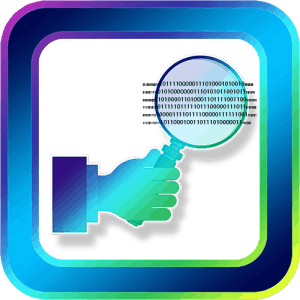Who is a computer forensics expert?
 A computer forensics expert is someone who has a strong background in computer security and detailed knowledge of the workings of computing devices running any version Windows, Linux, Unix, iOS or Android. He or she will also have a good understanding of computer networks including wireless, Bluetooth, mobile communications and unified communications including voice/video over IP networks (VOIP). In addition to this, a computer forensics expert must have inquisitive and digital detective qualities and should always ask questions and find answers as to why, what, when and how something happened and by whom. A computer forensics specialist will also need to be familiar with the legal system of the jurisdiction in which he or she works.
A computer forensics expert is someone who has a strong background in computer security and detailed knowledge of the workings of computing devices running any version Windows, Linux, Unix, iOS or Android. He or she will also have a good understanding of computer networks including wireless, Bluetooth, mobile communications and unified communications including voice/video over IP networks (VOIP). In addition to this, a computer forensics expert must have inquisitive and digital detective qualities and should always ask questions and find answers as to why, what, when and how something happened and by whom. A computer forensics specialist will also need to be familiar with the legal system of the jurisdiction in which he or she works.
Ideally, a computer forensics expert should combine the quality of a computer specialist, lawyer and a police detective and should have their acumen and sharp and scrutinising mind.
What does a digital forensics expert do?
A digital forensics expert investigates computer crime, data theft, intellectual property violations, internet fraud, social media bullying, email interception, online stalking, employee computer misuse, child pornography and other computer-related offences using computers, mobile phones, CCTV cameras and other digital media. He or she will examine all computer related evidence obtained from these sources and compile a report summarising his or her findings and making comments on what has been found. The task of a computer forensics specialist is defined by the brief he or she receives by the commissioning person or company.
The commissioner of the the digital forensics investigation normally provides the computer forensics expert with details of what he needs to investigate. The commissioner can be a law enforcement officer, a defence lawyer, company director, prosecutor, private individual or any other stake holder. The investigation itself and the report compiled by the computer forensics analyst, must comply with the rules and regulations set by the UK Justice Ministry.
Additionally, the acquisition or seizure of the computer or mobile equipment is subject to rules governing the chain of custody of evidence which requires recording the full details of when and how the evidence was acquired and who handled it so that any tampering or doctoring of the evidence is prevented and the integrity of the evidence is preserved.
What kind of training does a computer forensics expert require?
A computer forensics expert must be trained on procedural matters on how the the digital evidence is acquired and what steps need to be taken in order to preserve the chain of custody and prevent the contamination of digital evidence. The digital forensics expert must also receive training on how to write reports and comply with the regulations governing computer forensics investigations as well as ISO/IEC 27037:2012 standard which provides guidelines for specific activities in the handling of digital evidence, including identification, collection, acquisition and preservation of potential digital evidence that can be of evidential value.
Computer forensics experts need to be trained on how to handle personal data and preserve the privacy of the subjects of the investigation in accordance with law making sure that only relevant information is disclosed and no breach of privacy occurs in the course of the forensics investigation. Legal training is required for computer forensics experts to ensure they can handle and present the evidential material to the court in a manner which is admissible and at the same time understandable to the presiding judge and the jury. This becomes necessary if the computer forensics expert is asked to testify in the court as an expert witness.
 What certifications and educational background does a digital forensics expert need?
What certifications and educational background does a digital forensics expert need?
Any computer forensics specialist should have some vendor certifications such as EnCE (For Encase Forensics by Guidance Software) as well vendor-neutral certifications such as Certified Forensic Computer Examiner (CFCE) or Certified Computer Examiner (CCE). This certification is widely acknlowedged by government agencies. Any of the following certifications will be very useful and will give the computer forensics experts more credibility and professionalism:
- GIAC Certified Forensic Analyst (GCFA)
- GIAC Advanced Smartphone Forensics (GASF)
- GIAC Certified Forensic Examiner (GCFE)
- GIAC Network Forensic Analyst (GNFA)
As for educational background of the computer forensics consultant, he or she should be a computer science graduate with a good understanding of Python programming and scripting language. Most computer forensics tools and scripts are written in Python therefore, a fair level programming skill in it will be extremely beneficial. An excellent knowledge of all the major computer operating system in particular Windows, Linux Android and iOS will be essential for a good computer forensics expert.
How can computer forensics experts help you?
A computer forensics analyst can help in many ways by gathering potentially evidential material from computers, mobile phones, networks, CCTVs, drones, cars and smart appliances. The evidence collected from digital devices are then sifted and boiled down to the most critical data which will have a decisive impact on outcome of any investigation or any of the cases handled by court or your defence lawyers. Therefore, hiring a certified and competent computer forensics specialist will help you find the perpetrators of a crime or find evidence of the activities of a disloyal employee leaking critical business information to your arch rivals. If you or your client is bullied on social media or slandered online, a computer forensics expert can come to your aid and find all the offensive material and document it in such a way that the culprit can be identified and caught.